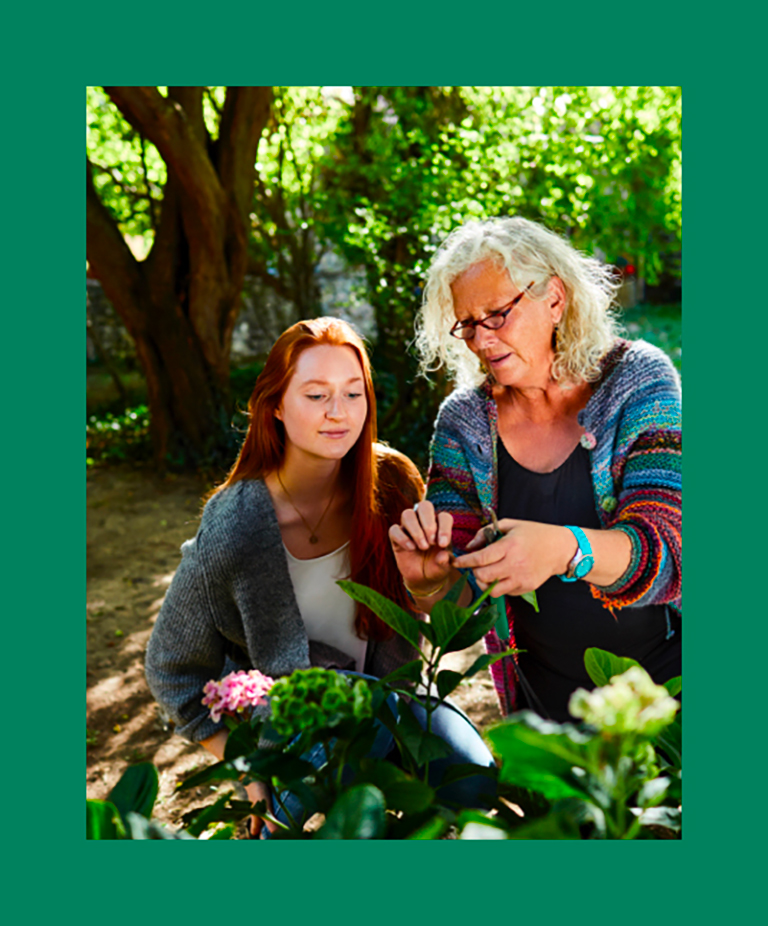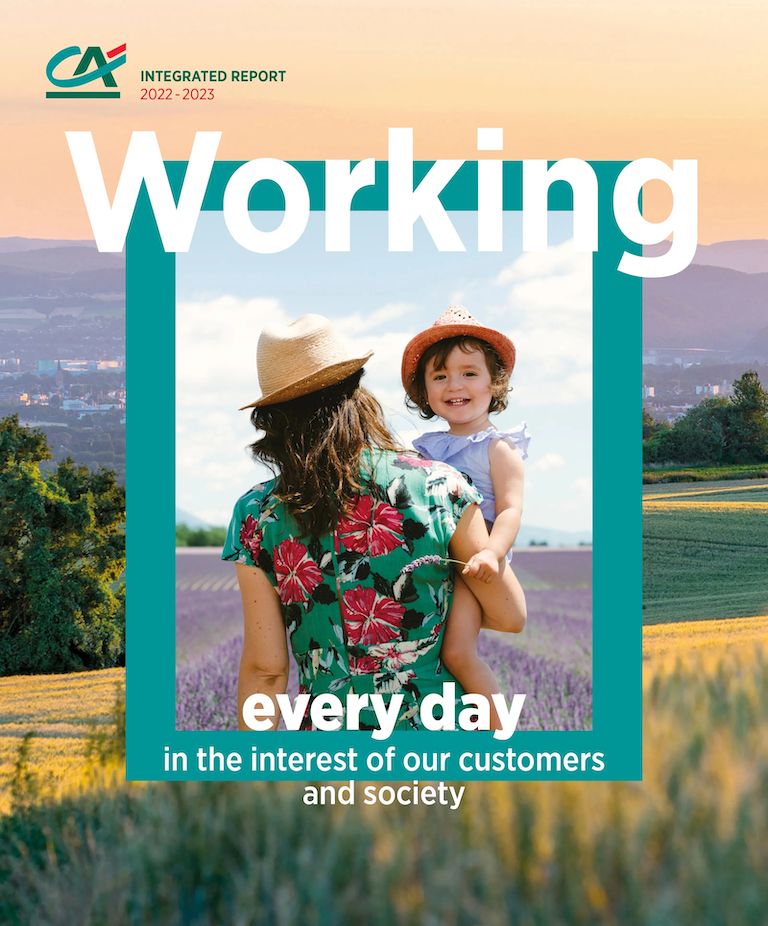Crédit Agricole has always worked to support major changes in agriculture. At a time when agriculture is the subject of media debates, our mission is to help the players in this field to remain competitive in the world of tomorrow. We are once again reaffirming our commitment by placing the success of the agricultural and agri-food adaptation at the heart of our Societal Project.
In December 2021, as part of its Societal Project, the Group reaffirmed its ambition to “Make a success of the agricultural and agri-food transitions”, which is organised around three commitments:
- Support the evolution of production techniques towards a competitive and sustainable agri-food system.
- Enable French agriculture to contribute actively to the fight against climate change.
- Contribute to strengthening food sovereignty.
In 2022, Crédit Agricole developed an action framework called the “Agricultural and agri-food transitions foundation”, which is divided into five axes and 14 drivers. This framework summarises the priority issues and will be used by all business lines (Crédit Agricole S.A. subsidiaries and Regional Banks) to guide financing and investments in the sector:
- Promoting the attractiveness of the farming profession.
- Contributing to the transition to low-carbon food.
- Preserving natural resources.
- Changing our eating habits.
- Producing via a circular economy.

Supporting professionals in the agricultural and agri-food sectors
Crédit Agricole supports the agro-ecological transition of its customers and is committed, in particular, to manufacturers wishing to source agricultural commodities from “regenerative agriculture”. This support is backed up by insurance coverage adapted to growing climate risks.
Regenerative agriculture
Regenerative agriculture is a set of agricultural practices that aim to rehabilitate and improve the entire farm ecosystem in terms of sustainability and economic efficiency.
It is a method of farming that places great importance on the health of the soil and improving the resources that it uses (soil, water, biodiversity etc.).
-
1 in 4
2025 target: support 1 in 4 farmers dealing with climate uncertainties
-
27,500
Pacifica: 27,500 climate insurance contracts (Crops, Hail and Grassland).
Supporting evolution towards a competitive and sustainable agri-food system
-
€1bn
This is the amount of the investment package created by Crédit Agricole to support agricultural and agri-food transitions and the preservation of biodiversity.
To achieve this objective, Crédit Agricole wants to launch a multi-product scheme designed to support all its customers, both upstream and downstream, in France and abroad, by mobilising Crédit Agricole’s funds and by joining forces with third-party investors or other partners.
Enabling French agriculture to contribute actively to the fight against climate change
To accelerate the reduction of greenhouse gas emissions in the sector and develop natural carbon sinks, the Group is working to structure the agricultural carbon sector in France via the Low Carbon Label scheme set up by the French Ministry of Ecological Transition.
- Crédit Agricole approved the creation and roll-out, in 2023, of a platform for trading carbon credits from French agricultural and forestry projects. More broadly, this platform will exist to support farmers in their agri-environmental transition projects by promoting their carbon reduction and storage efforts through the sale of carbon credits.
- This platform will not only help farmers to initiate transition projects, it will also support customer companies in their decarbonisation strategy, based on three principles: measure, reduce and contribute to carbon neutrality.

Contributing to strengthening food sovereignty
The Group is working on three pillars to support this challenge: help new generations of farmers get started; enhance the value of the farming profession and promote sustainable food by developing short supply chain distribution.
France has significant assets to be more autonomous and secure its production, whether for human or animal consumption.
In order to find concrete solutions to these sovereignty issues, Crédit Agricole organised a national call for ideas from 1 September to 31 October 2022 on the topic:
How can Crédit Agricole support the world of agriculture in the future?
Of the 2,717 ideas proposed by all participants (employees and directors), 12 ideas caught the attention of the participants, the Group’s agricultural and agri-food experts and the pre-selection jury.
Three projects were voted the winners of the call for ideas on three themes:
- Theme “Generational Renewal”: Setting up and transfer café (Champagne-Bourgogne and Languedoc Regional Banks);
- Theme “Promotion of the farming profession”: Mutual aid (Sud Méditerranée Regional Bank);
- Theme “Sustainable Food”: Christmas Oranges (Charente-Maritime Deux-Sèvres Regional Bank).







